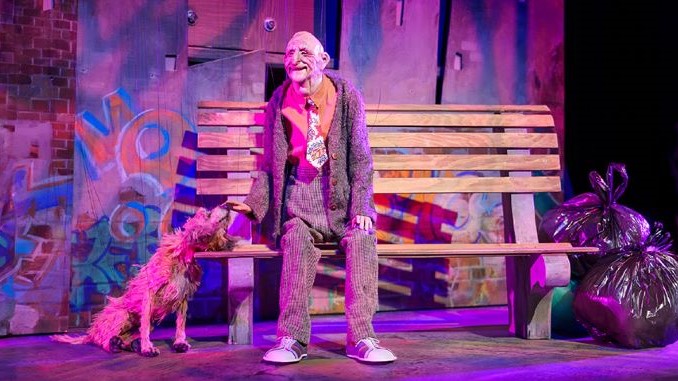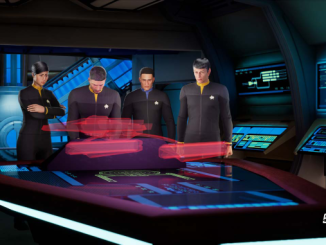Ronnie Burkett, Emmy Award Winner 1979, Obie Award Winner 199, Order of Canada 2019, is having a good year.
Hot on the heels of his Governor General’s Award earlier this year, the master puppeteer is currently in Toronto presenting his latest creation, Wonderful Joe, a self-described “love letter to imagination, hope, and the art of filling broken hearts with gold.”
Joe is also, because content warnings are in order, a show that deals in surprisingly dark themes, resulting in a (not entirely welcome) tension between its more dispiriting moments and its purported goal to uplift. While you are more likely to come away from the show hopeful than depressed, there’s no question that Wonderful Joe‘s world is not exactly, well, wonderful.

Wonderful Joe is a technical marvel. Though it takes a few minutes to get used to the artifice of it all, once you do, the puppets take on a believable, lifelike quality, with naturalistic movement and subtle touches – like the way a dog tilts its head to look at its owner – which imbue everything with character.
Joe follows the title character and his dog, Mister, who embark on a “grand adventure” upon learning their ancient apartment block is slated for demolition. Yes, this is a puppet show about gentrification, about the evisceration of neighbourhoods and the dulling of that very atmosphere which makes them desirable.
It’s also, because this is a Ronnie Burkett show, about the diverse people who live within those neighbourhoods, folks often relegated to the margins of society (and, frankly, who you would not expect to encounter in a puppet show). It’s a sympathetic portrayal of this bunch, albeit a habitually vulgar and crude portrayal, with characters who run the gamut from likeable to strikingly unpleasant.
This tonal dissonance is jarring: for every moment of compassion or sly beauty, Joe also finds time for sub-South Park potty humour, and lazy jokes which rely on the very stereotypes the show is meant to rebel against. It becomes hard to buy into a heartfelt monologue about reaching for the stars when it’s immediately preceded by, say, a profanity-laced tirade by the Tooth Fairy.
For someone as technically proficient as Burkett, Joe also makes some odd structural choices. The show’s best puppet, the lovingly realized dog Mister, is given the least to do, mostly relegated to a static presence on the sidelines. And though Burkett occasionally demonstrates his ability to manage two, three, even four puppets at a time, Joe largely consists of a series of monologues, characters speaking at length from centre stage. At one hour and forty minutes with no intermission, it’s a lot.
There’s also a disappointing lack of prop work or set design, giving the characters little to interact with. With the exception of a final conversation on a park bench, pretty much every scene consists of puppets standing around on a bare stage. The park bench scene proves Burkett is capable of dynamic direction; it’s disappointing he doesn’t extend that approach to other parts of the show.
All that said, if you can abide by Joe‘s occasional descents into crassness, and if you don’t mind hearing a puppet moralize on obvious themes – love your fellow humans, don’t make assumptions based on appearances, etc. – it’s a charming enough evening of theatre. Definitely not for children, though.
***
Tickets for Wonderful Joe can be found here.
The NFB’s recent 5-minute mini-documentary on Burkett can (and should) be watched here.



